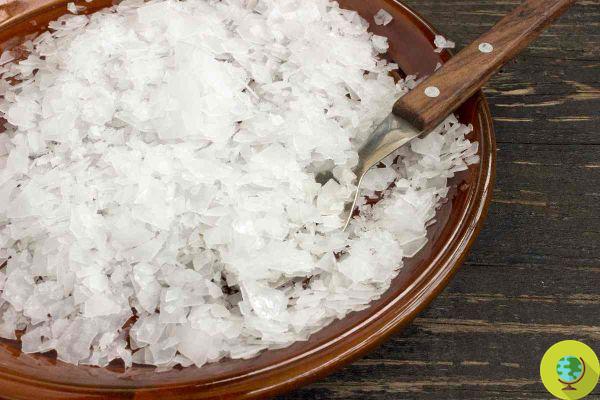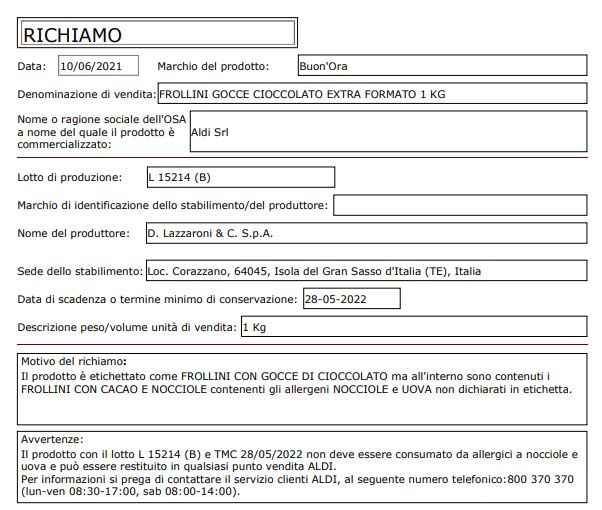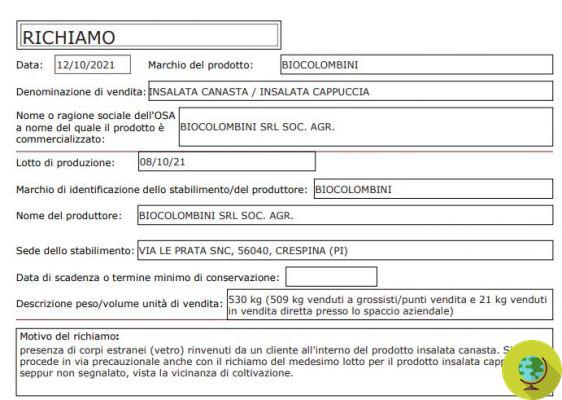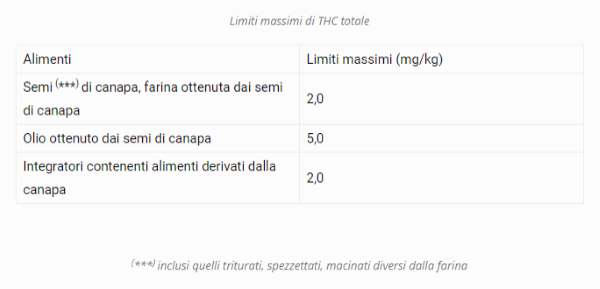
Nigari, also known as magnesium chloride or white gold, is an unrefined type of salt that is obtained during the production of the most common sea salt. Let's discover all its uses, properties and benefits.
Don't store avocado like this: it's dangerous
Il nigari it is a salt obtained from sea water and is considered the vegetable rennet par excellence when preparing tofu. Specifically, it is a by-product that is obtained during the production of normal cooking sea salt. It differs, however, from the latter in that it is composed of ninety-five percent of magnesium chloride. (Read also: Magnesium: the 10 best plant sources)
Index
What is niagari?
The nigari salt is a highly soluble inorganic compound, which does not undergo synthetic refining processes.
It has a characteristic bitter-salty taste and comes in the form of white flakes. It blends phenomenally with soy milk, and acts as a coagulant to cut the milk in tofu making.
It is recommended for people who follow a vegetarian and vegan diet, but also for all those who love or are looking for new, unusual flavors and exotic inspirations in their kitchen.
Nigari also called magnesium chloride is one of several types of magnesium supplements. Others include magnesium aspartate, magnesium citrate, magnesium gluconate, magnesium glycinate, magnesium lactate, magnesium malate, magnesium oxide, and magnesium sulfate.
Property
The salt of nigari is also called white gold because it is very versatile; in fact, it is used not only in the kitchen. A very important and valuable element contained in this sea salt is it iodine, essential for the proper functioning of the thyroid, but also for heart health.
Magnesium chloride also prevents depression and is used in the treatment of infectious diseases. It also contains a lot zinc, which in turn has a positive effect on skin health and treats various types of changes, such as acne.
This salt also has anti-inflammatory and antibacterial properties. It positively affects blood circulation and delays the aging process.
Most people are used to using regular salt in cooking, but it is worth pointing out that nigari salt can be an even healthier alternative.
Uses of magnesium chloride
People mainly use this compound as a supplement, to increase dietary magnesium intake, but also because it is effective for treating 2 type diabetes, hypertension, osteoporosis and migraine.
But nigari salt is much more versatile, and can be used in various areas. In cooking, for example, it is used to make tofu but it can also be added to other foods or dissolved in water. Since it has a bitter taste, it is recommended to mix them with fruit or vegetables, which will alleviate the taste.
This salt is also suitable for outdoor use, for example for gods therapeutic baths that are good for the skin. Here's how to make them at home:
- pour the nigari salt crystals into the tub (about 1-2 cups)
- add lukewarm water and wait until they have dissolved
- proceed with a relaxing bath for 20-30 minutes.
During bathing, burning sensations may occur on the skin, which usually disappear after rinsing.
Baths with magnesium chloride are recommended because this compound is easily absorbed by the skin and, therefore, the beneficial effects are manifested immediately.
Immediately after, it is recommended to massage with a nourishing oil or cream, as the nigari can overdry the epidermis.
Benefits
Some people use magnesium for its potentials benefits for health, but also for:
- sleep
- improve mood
- have more energy
La magnesium deficiency it is rare in healthy individuals, however, some situations can lead to a deficit such as:
- alcohol consumption
- malnutrition
- some medications
- severe diarrhea or vomiting
- malabsorption diseases, such as Crohn's disease and celiac disease
- diabetes
- pancreatitis (inflammation of the pancreas)
- kidney disease
- excessive sweating
Here are the main benefits of magnesium chloride.
Helps with type 2 diabetes
The researchers noted a strong correlation between 2 type diabetes and magnesium deficiency. It is estimated that 14-48% of people with type 2 diabetes are deficient.
In one study, researchers investigated whether magnesium supplements improved glucose (blood sugar) levels in 116 participants with prediabetes and low blood magnesium levels.
The experimental group received 382 mg of magnesium per day for four months, while the control group received a daily placebo. At the end of the study, 50,8% in the first group improved their glucose levels compared with 7% in the placebo group.
Treat high blood pressure
Magnesium helps regulate blood pressure. Therefore, people who suffer from hypertension they can take supplements to reduce it.
A meta-analysis evaluated the effects of magnesium supplementation on blood pressure. Compared to the placebo groups, those who received 368 mg of magnesium per day for three months reduced their systolic (upper) blood pressure by 2mmHg and their diastolic (lower) blood pressure by 1,78mmHg.
Despite these findings, the evidence is not conclusive and more research is needed.
Prevents osteoporosis
Magnesium is essential for bone health.
However, some studies have found that both low and high magnesium concentrations can negatively impact bones.
Therefore, more research is needed before supplementation can be recommended to prevent or treat osteoporosis.
Effective for counteracting migraines
Nerves and blood vessels play a central role in headaches; some research has focused on the relationship between migraine and magnesium.
In one study, researchers evaluated magnesium, Vitamin B12 and Q10 as a migraine treatment.
The research analyzed 130 participants who experienced three or more migraines per month. For three months, the control group received a daily supplement containing 400 mg of vitamin B12, 600 mg of magnesium, and 150 mg of coenzyme Q10.
After three months, the migraine and its intensity had decreased from 6,2 days to 4,4 days.
Effetti collaterali
Consuming magnesium chloride can cause some side effects, as:
- stomach ache
- nausea
- Diarrhea
- vomiting
- dizziness
- fainting
- confusion
- trouble breathing
- allergic reactions
Consequently, you should always consult your doctor before taking this supplement.
Follow us on Telegram | Instagram | Facebook | TikTok | Youtube
Could it be interesting for you:
- Kombu seaweed: properties and how to use it in the kitchen
- Za'atar: how to make Lebanese spice mix and manaqish recipe to use it
- Cranberries: New Study Reveals Incredible Benefits If You Eat 100 Grams A Day
- Chlorella Vs Spirulina: Which Is Better? All the differences between the two algae (and which one is better for you)
- Fermented Papaya: Does It Really Lose Weight? Things to know before taking the supplement
- Sea buckthorn: what it is, all the benefits, doses and contraindications
- Flaxseed: 5 super easy ways to add benefits to your diet


























